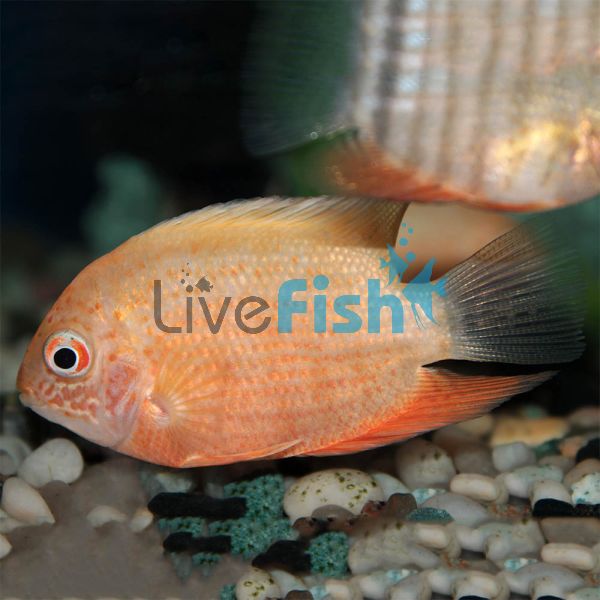Red Severum 5cm
The Red Severum has been hard to come by in Australia, but we have been able to source some stock.
- Buy 2 for $112.84 each and save 10%
- Buy 4 for $100.30 each and save 20%
- Buy 6 for $87.77 each and save 30%
The Red Severum has been hard to come by in Australia, but we have been able to source some stock.
The Severum is a popular large Cichlid with a quiet, peaceful disposition. They prefer vegetable-based/green foods and enjoy treats such as lettuce leaves. Feeding foods rich in carotenoids also helps optimize their color. Usually grows to 15-20cm.
More than 225 species, with estimates of 300 species, of cichlids, are found throughout South America. An estimated 75% of these inhabit the mighty Amazon River Basin. Cichlids are also found in Central America, where they are well-known for their pugnacious behavior and their stunning colors. Most of these cichlids are large, thus requiring large tanks. These fish inhabit most types of waterways throughout Central America including lakes, streams, rivers, even underground water sources.
Their colorful appearance, the many different species available, their behavior and their breeding are just some of the reasons the Cichlids are one of the most popular aquarium fish.
Due to their aggressive behavior, the tank for cichlids should be as large as possible, with its length being more critical than its height; meaning the longer the better.
In the Cichlid tank, there must be places of refuge. These can be rock caves, large pieces of driftwood, or even inverted flowerpots. Most large species of Cichlids will dig up the substrate material, and occasionally will remove plants from the substrate. The Angelfish, Discus, and the dwarf species Apistogramma all prefer a densely planted tank.
The water temperature should be in the range of 24-28 degrees celsius
The diet should consist of live and frozen food of all kinds as well as a large flake staple food. Large specimens can be feed Earthworms and Crickets.
| Scientific Name | Heros Cf Efasciatus |
|---|




